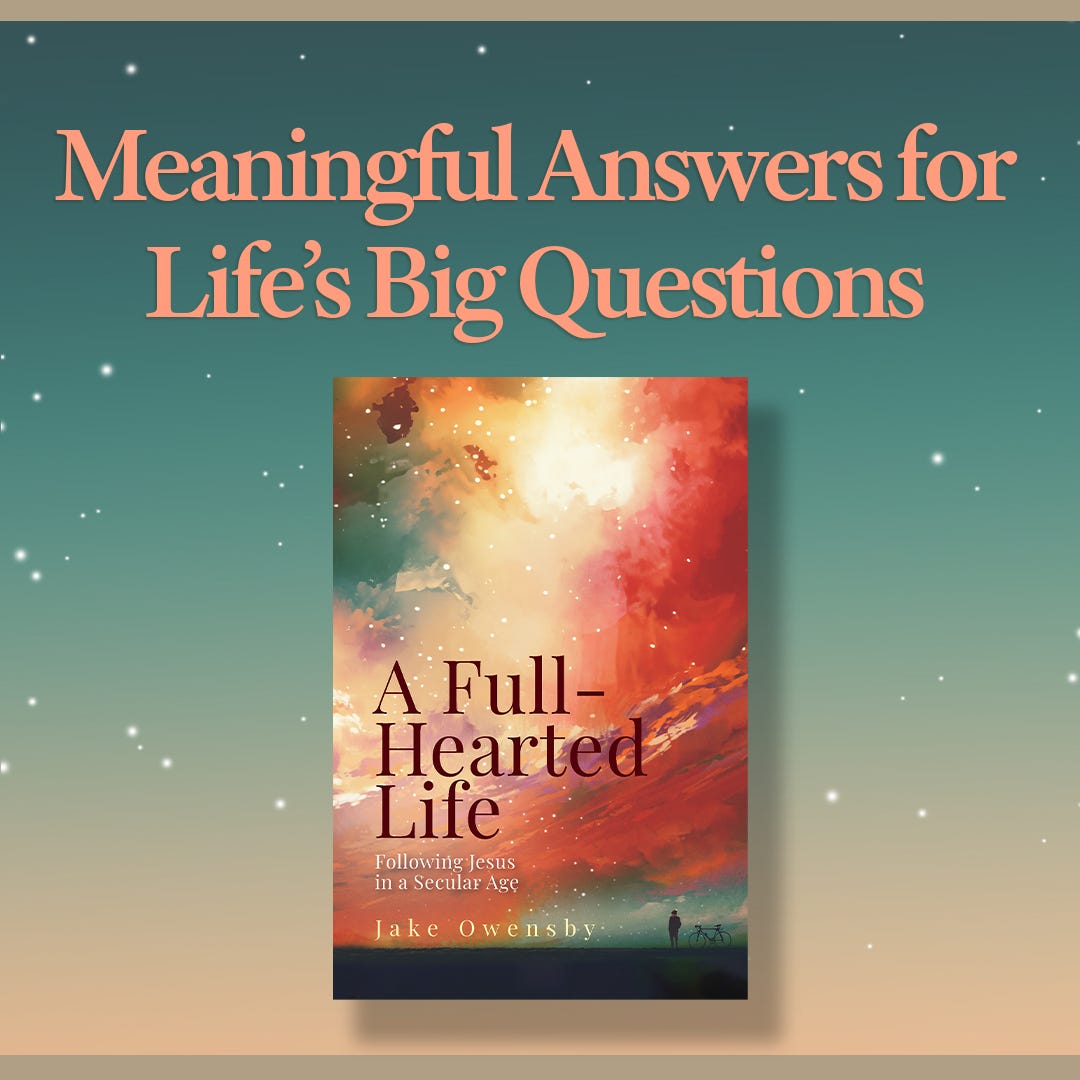You Can't Get There from Here
But God comes here from there. Part One of a John the Baptist Series
Hi friends! Thanks for being here. If you haven’t subscribed yet, give it a try for free. Paid subscriptions come with extras and fund ministries beyond the walls.
If you have friends who would like to be part of this community, please send them this way using the button below:
And before we turn to today’s reflection, here’s some news I really excited about:
A Full-Hearted Life is now available!
Click the image or the button below to order A Full-Hearted Life: Following Jesus in This Secular Age. And it would be a huge help if you would share the image below or a photo of you and your copy (once you get it) on social media.
Okay, now for today’s reflection:
You Can’t Get There from Here
Keep reading with a 7-day free trial
Subscribe to The Woodlands to keep reading this post and get 7 days of free access to the full post archives.





